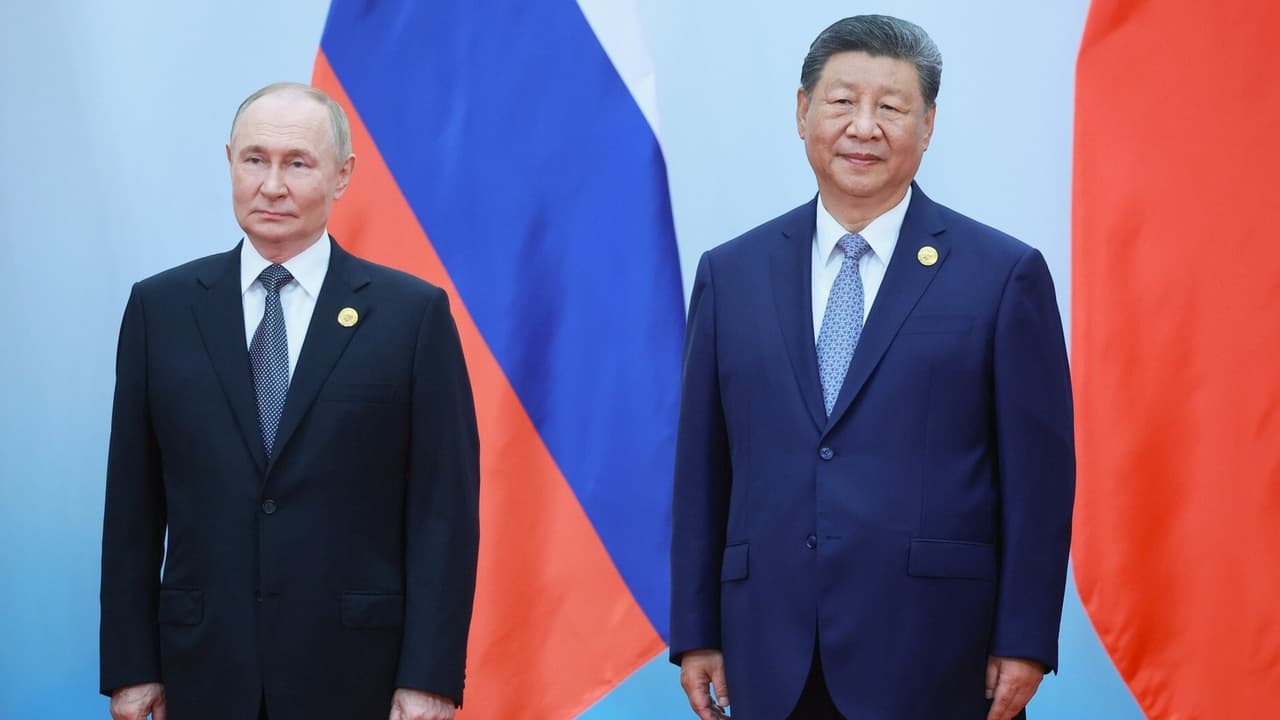Putin and Xi were caught discussing human immortality and living past 150 years. While organ transplants and biotech spark hope, scientists warn immortality remains far-fetched. Focus remains on healthy lifespan, not eternal life.
During a recent Beijing summit, world leaders Vladimir Putin and Xi Jinping were caught on a hot mic discussing a topic straight out of science fiction: human immortality. According to reports, the two 72-year-old leaders speculated on how medical advances, organ transplants, and biotechnology could allow humans to live past 150 years — or even never die.
While the idea makes for jaw-dropping headlines, what does science actually say about living forever?
The Leaders’ Vision: Living Past 150
Putin told Xi, “Thanks to the development of biotechnology, human organs can be continuously transplanted, people could get younger as they grow older, and may even become immortal.”
Xi responded in kind, saying there were predictions that humans could “live to 150 years old” within this century.
The comments reflect the fascination with longevity that seems to preoccupy some of the world’s most powerful figures. But scientists caution that these ideas are far from reality.
Is There a Limit to Human Lifespan?
Experts in human ageing say there is currently no scientific evidence to suggest a human could live forever. In fact, researchers haven’t even agreed on whether there’s a biological limit to lifespan.
“The debate is not settled,” said Ilaria Bellantuono, a researcher on the biology of ageing at the University of Sheffield.
Despite decades of medical progress, longevity records have largely plateaued. France’s Jeanne Calment, who died in 1997 at the age of 122, still holds the record for the oldest confirmed human.
Some studies, such as research published in Science in 2018, suggest mortality rates may level off at extreme ages, meaning a 115-year-old may be no more at risk than someone aged 105. But even this does not guarantee humans can reach 150 — and certainly not immortality.
Replacing Organs: A Realistic Approach?
Putin’s suggestion of regularly replacing organs to reverse ageing has drawn strong criticism from scientists.
“It’s pure madness,” said Eric Boulanger, a professor of biology and ageing at France’s Lille University.
He pointed out multiple barriers: the constant need for fresh organs, the trauma of repeated surgeries, and the fact that our bodies are far more complex than just organs. Fatty tissue, bones, and countless other systems are affected by ageing in ways that can’t simply be swapped out.
The Billion-Dollar Longevity Race
Interest in living longer isn’t limited to world leaders. Around the globe, huge sums are being invested in longevity research, regenerative medicine, and anti-ageing technologies. Russia, for instance, launched a 38-billion-ruble ($460-million) project last year focused on extending human lifespan.
In Silicon Valley, billionaires like Peter Thiel and Bryan Johnson are experimenting with anti-ageing techniques and lifestyle interventions aimed at extending life — or even achieving eternal life.
But mainstream scientists remain skeptical. Many of these efforts “lack scientific rigour and could even be dangerous,” Bellantuono and others have warned.
Realistic Paths to Longer Life
While immortality remains a fantasy, scientific advances are shedding light on ways to slow ageing. Researchers are particularly excited about epigenetics, the study of how genes switch on and off without altering DNA itself. Over time, this switching process seems to wear down, contributing to ageing.
Some promising studies, such as one published in Aging Cell in June, found that the drug rapamycin can extend lifespan in animals like mice by affecting epigenetic ageing. However, whether such results translate to humans remains unknown.
For now, experts suggest focusing less on living forever and more on living well.
“The focus should be on extending the number of years in good health,” Bellantuono said.
While the idea of immortality may excite imaginations — and world leaders alike — current science keeps it firmly in the realm of speculation. Organ transplants, drugs, and biotechnologies may one day extend life, but the complex realities of human ageing mean no one should expect to live forever. For most of us, the real goal is ensuring the years we do have are healthy, fulfilling, and well-lived.
(With inputs from AFP)
